The selling price may reach 800,000 yuan! Xiaomi SU7 Ultra mass production version is scheduled: facing the challenge of the Extreme Zeking
![]() 10/10 2024
10/10 2024
![]() 563
563
Will it sell 4,000 vehicles next year?
During his fifth annual speech, Lei Jun officially unveiled the Xiaomi SU7 Ultra prototype, showcasing numerous powerful parameters and extreme lightweight design during the event. However, Lei Jun himself admitted that he 'couldn't afford' the car, implying that the prototype was not destined for mass production. The mass-produced Xiaomi SU7 Ultra would inevitably undergo a series of modifications from the prototype.
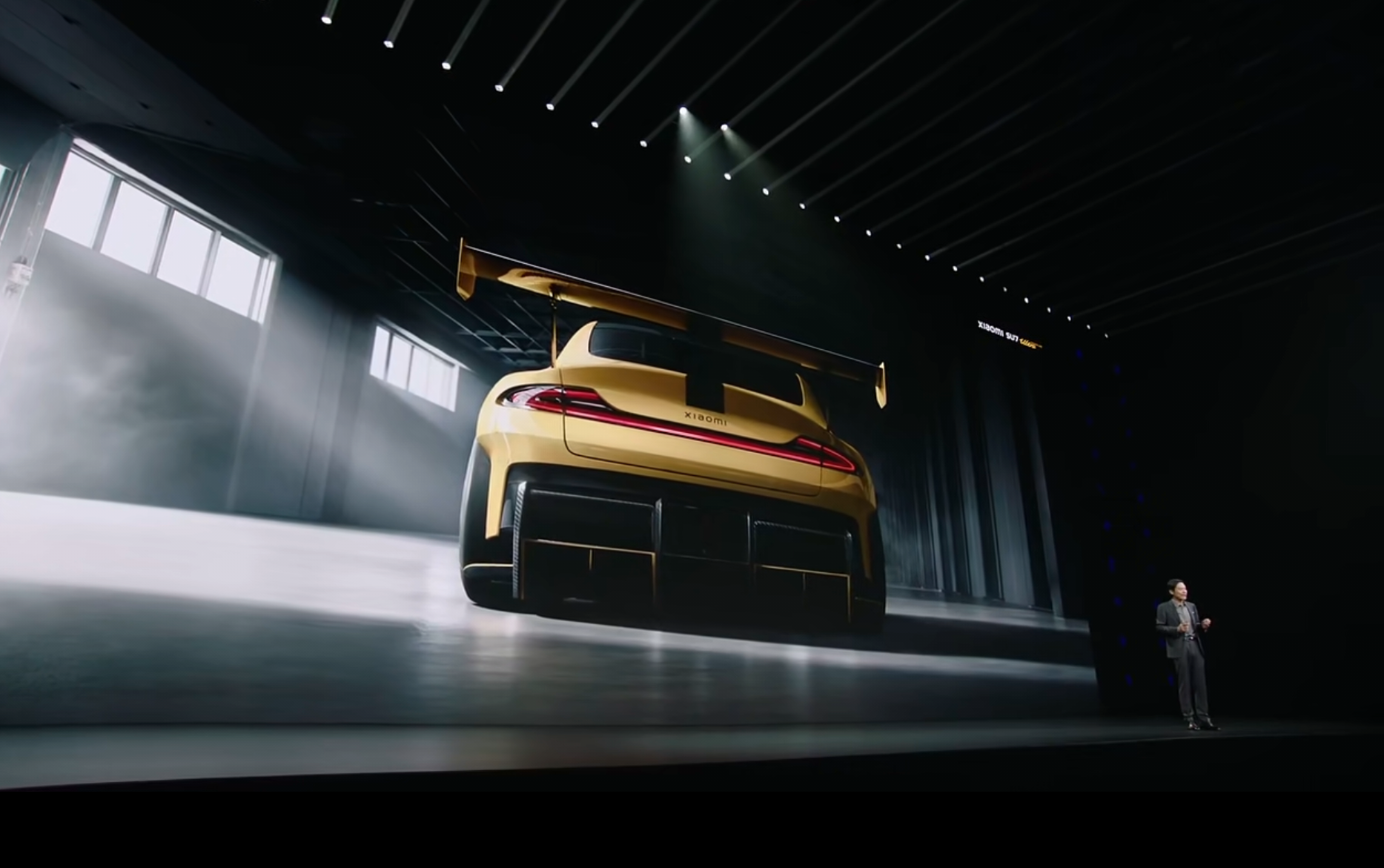
In a live broadcast following the annual speech, Lei Jun hinted at the price of the Xiaomi SU7 Ultra – “a bit pricey, but not exorbitant.” This vague statement led to a plethora of predictions in the following days.
It is revealed that Xiaomi will release the Xiaomi SU7 Ultra in the first quarter of 2025. Goldman Sachs, an investment bank and securities management firm, predicts that Xiaomi SU7 Ultra may sell 4,000 units next year, with an average selling price of approximately 800,000 yuan. This revenue is expected to account for around 5% of the brand's total automotive segment income.

Xiaomi has yet to respond to the valuation and sales predictions for the Xiaomi SU7 Ultra, but it cannot be denied that these predictions are not conservative. A Xiaomi SU7 Ultra priced at the 800,000 yuan level would compete directly with traditional fuel-powered sports cars from luxury brands like Porsche. As one of the best-selling sports cars in China, Porsche 718 sold around 4,600 units domestically last year.
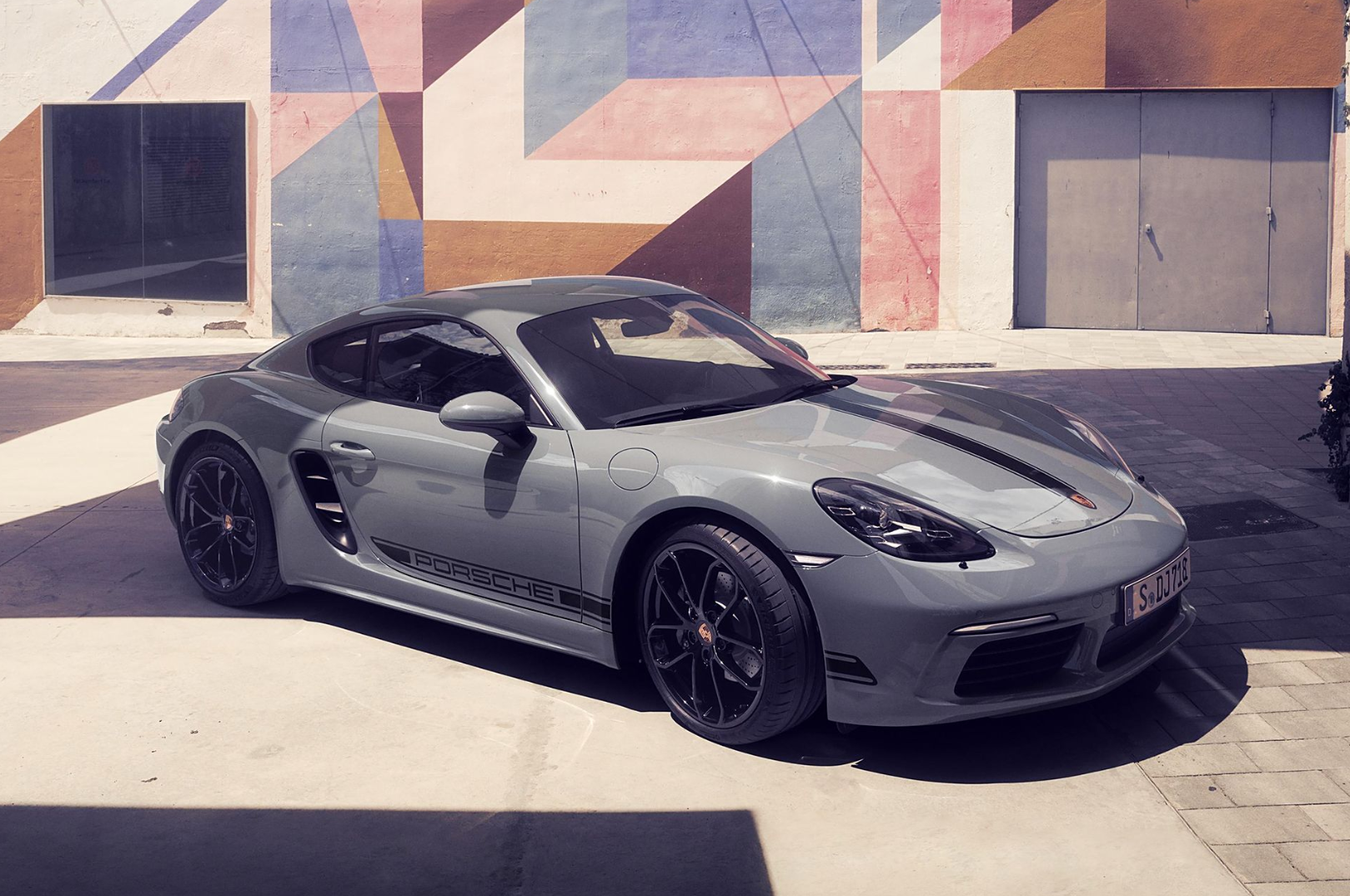
While Xiaomi is often synonymous with “cost-effective” in many people's minds, since the launch of its first car, the Xiaomi SU7, consumers have placed increasing importance on Xiaomi's product quality and are willing to pay for a Xiaomi product priced over 200,000 yuan. With Xiaomi gradually establishing its foothold in the automotive industry and the high popularity of the Xiaomi SU7, it is possible that the Xiaomi SU7 Ultra could reach the sales level of the Porsche 718.
What does the mass-produced Xiaomi SU7 Ultra lack compared to the prototype?
The Xiaomi SU7 Ultra prototype indeed boasts impressive technical specifications – over 1,500 horsepower, a 0-100 km/h acceleration time of 1.97 seconds, a maximum downforce of 2,145 kg, and full carbon bodywork. Conservatively estimating, the prototype's price would likely exceed one million yuan.
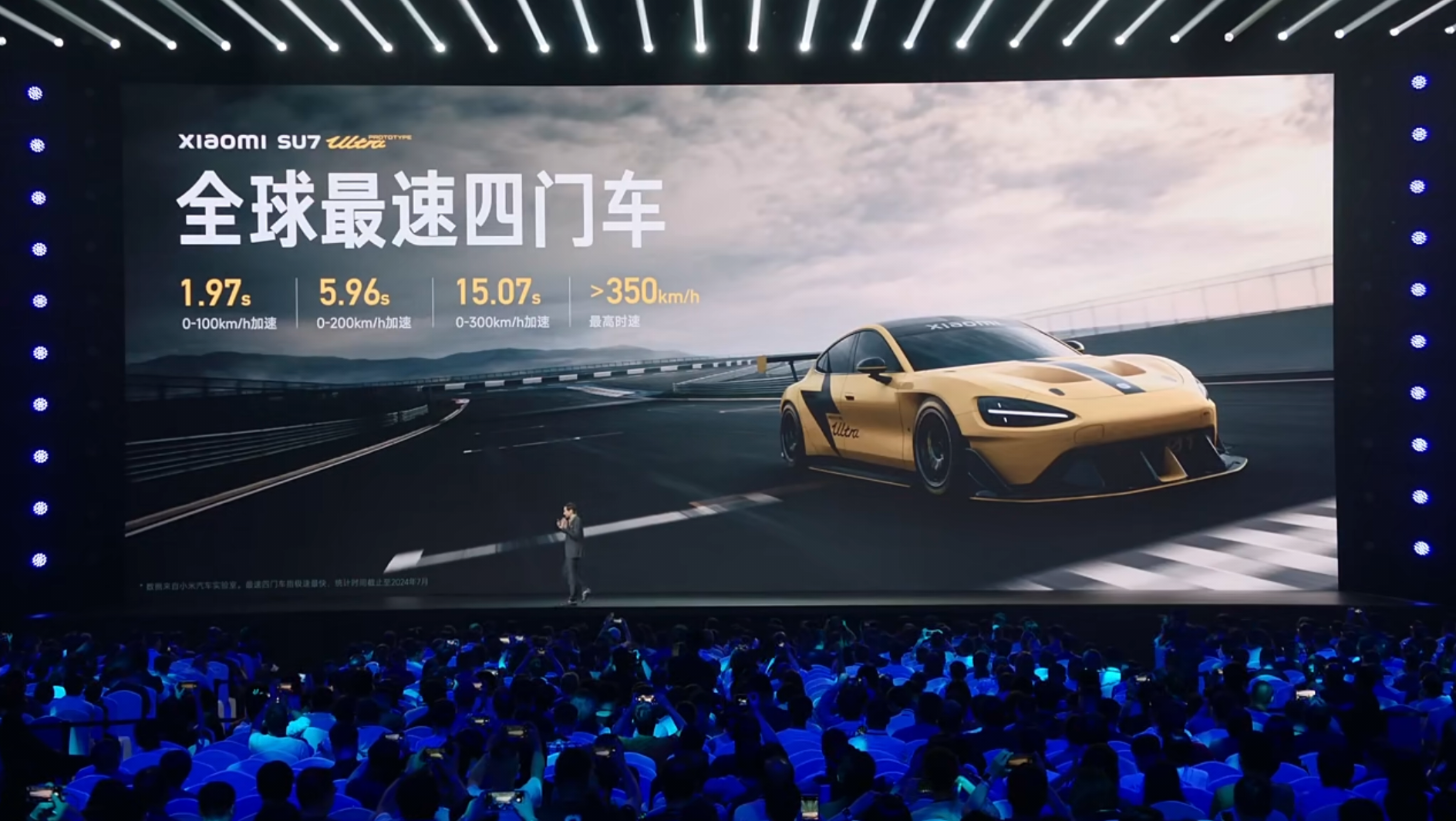
The prototype's primary purpose was to achieve impressive results on the Nürburgring, whereas the mass-produced version aims to deliver an unparalleled performance and handling experience to users. Therefore, the mass-produced Xiaomi SU7 Ultra will not feature full carbon bodywork but will likely incorporate carbon fiber materials only in critical areas. This is the primary reason for the lower price point of the mass-produced version.
Interestingly, in terms of key technologies, the mass-produced Xiaomi SU7 Ultra is likely to retain the same hardware as the prototype, including the dual V8s + V6s three-motor all-wheel drive system, AP brake calipers, race-specific brake discs, and the Qilin 2.0 racing battery.
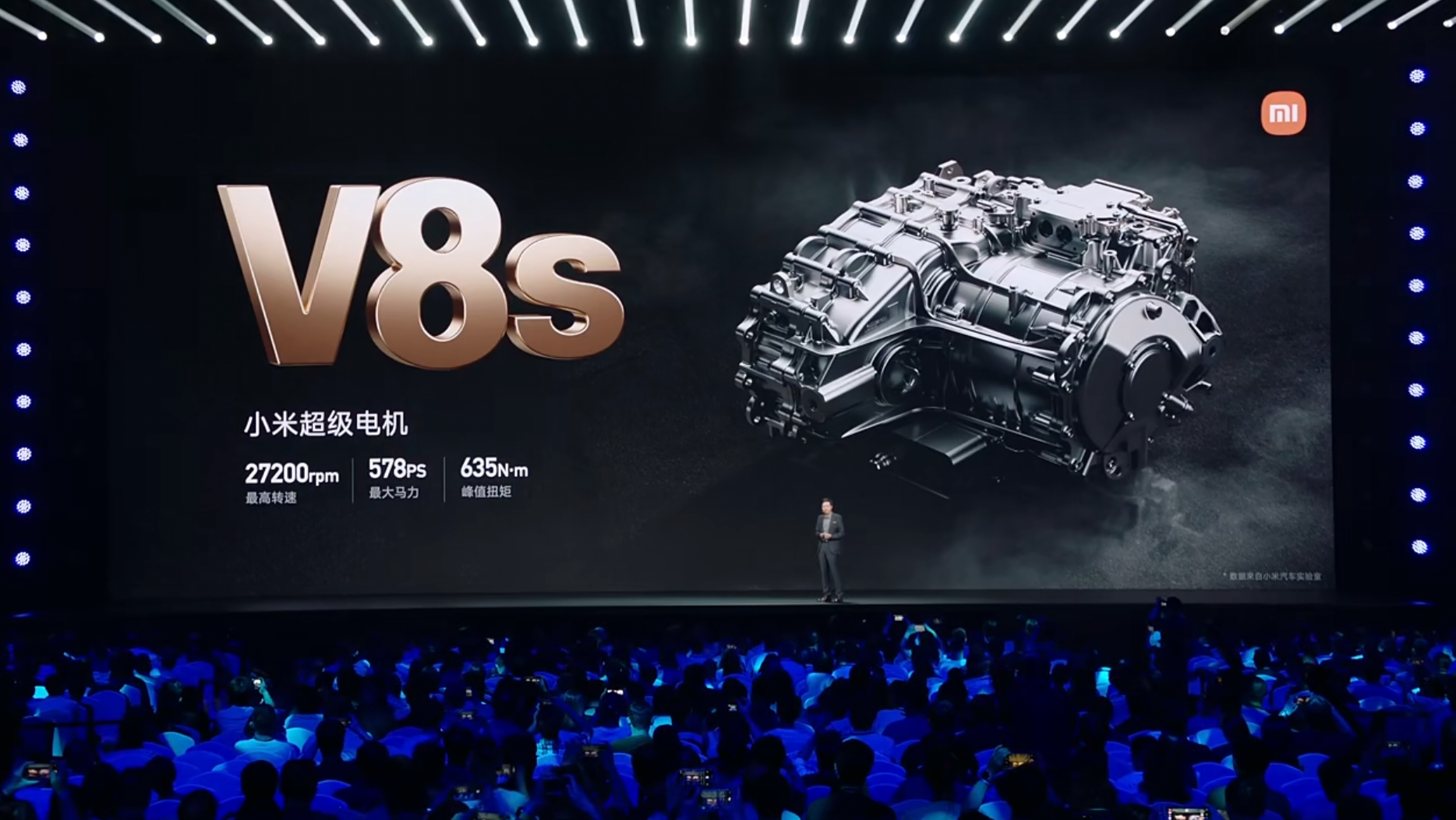
To lower the entry barrier, the mass-produced Xiaomi SU7 Ultra may compromise slightly on performance by introducing dual-motor variants, different range versions, or offering different chassis tunings and removing exaggerated exterior trim packages.
In addition, the advantages demonstrated by the Xiaomi SU7 Standard Edition in terms of practicality, intelligent driving, smart cockpit, and expandable accessories are likely to be retained in the mass-produced Xiaomi SU7 Ultra. Any "subtraction" is possible, as long as the technical capabilities of the mass-produced Xiaomi SU7 Ultra are clearly distinguished from those of the Xiaomi SU7 AWD Edition, solidifying its position within the brand. Whether 4,000 units can be sold in a year ultimately depends on the attractiveness of the pricing.

This year, Xiaomi Automobile has only launched the Xiaomi SU7, and it has already received numerous orders. The company will focus most of its efforts on this product. "Performance" is not a necessity for the mass market, and even though Xiaomi has a large fan base, not many consumers are willing to pay a premium for excessive performance and handling. However, as a benchmark product, the Xiaomi SU7 Ultra holds greater strategic significance than market significance. Even if annual sales may not reach 5,000 units, Xiaomi Automobile will invest considerable resources into it.
Of course, all of this is merely a prediction by Goldman Sachs, and accurate information is scarce at present. What is certain is that the Xiaomi SU7 Ultra will be released next year, and as the "Ultra" version, it will undoubtedly offer something unique compared to the Xiaomi SU7 AWD Edition.
Xiaomi SU7 Ultra Takes on the Geely ZEEKR 001 FR in the 800,000 Yuan Range
When it comes to pure electric performance cars priced in the 800,000 yuan range, the first that comes to mind is the Geely ZEEKR 001 FR, which has a guide price of 769,000 yuan.
Remember during the launch of the ZEEKR 001 FR, the official directly compared its acceleration with the legendary Bugatti Veyron from the era of fuel-powered cars, and it became the first Chinese brand mass-produced car to rank in the top 20 on the Zhejiang International Circuit lap time list, dispelling doubts about "electric cars being fast only in the initial stages."
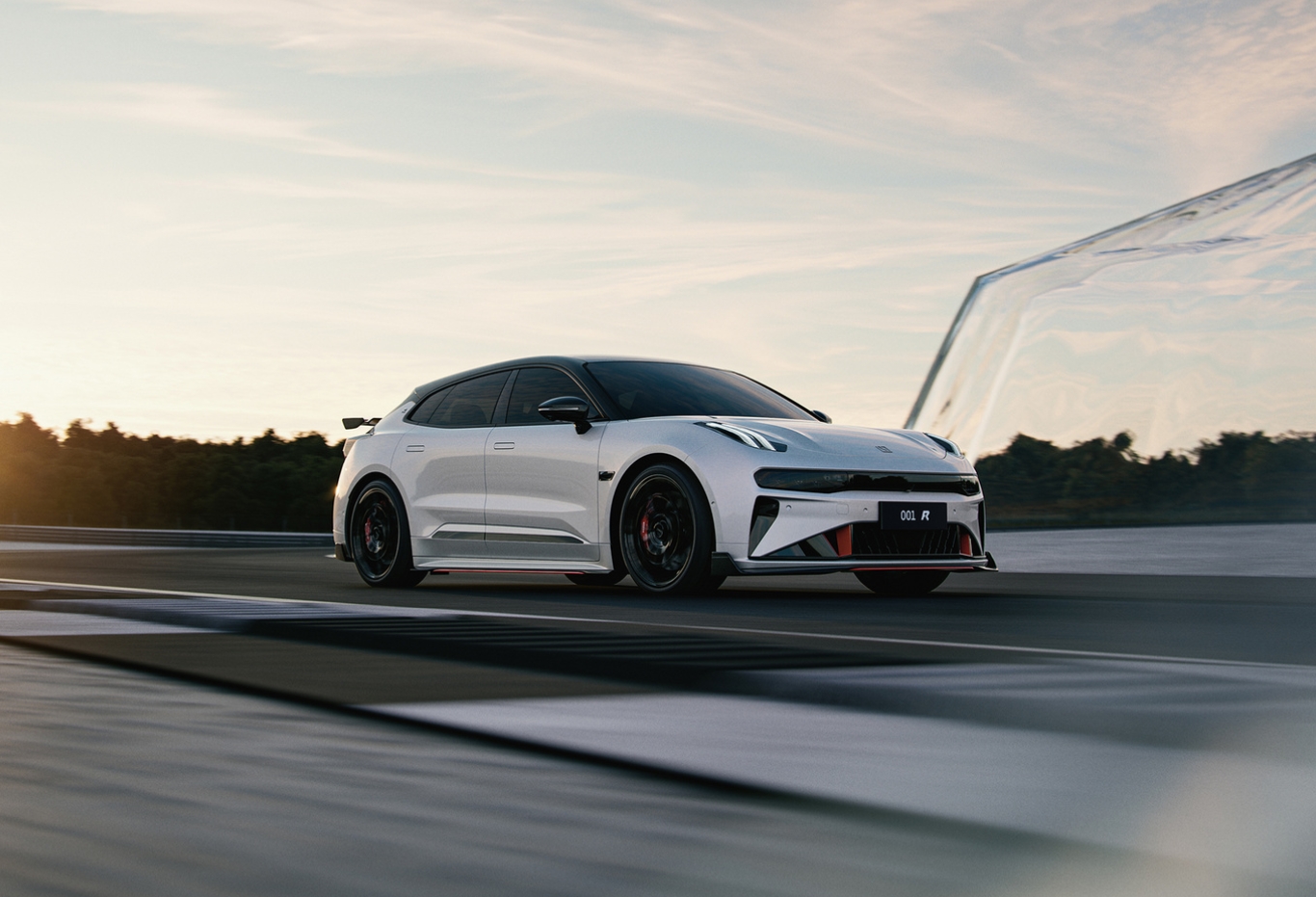
Few brands dare to venture into performance cars, and those that do often employ top-tier technologies, resulting in prices exceeding one million yuan. Overseas brands have earned consumer recognition through years of market reputation.
As an early adopter of pure electric performance cars, the ZEEKR 001 FR quickly gained market acceptance. According to the official statement, the ZEEKR 001 FR is currently limited to 99 deliveries per month, and all units for the next year were sold out as early as November last year.
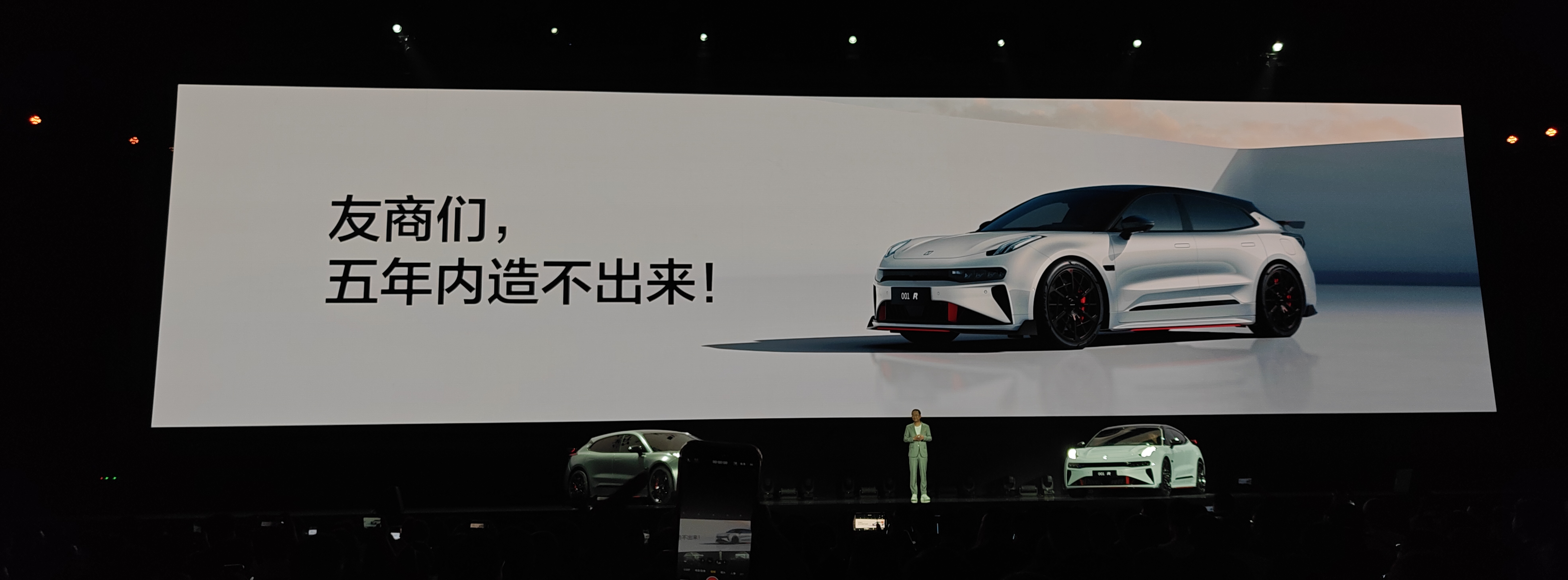
It is conceivable that the Xiaomi SU7 Ultra, priced in the 800,000 yuan range, must at least match the ZEEKR 001 FR, which is faster than the Bugatti Veyron, in terms of raw power. If Xiaomi SU7 Ultra is indeed launched next year, it will be a slap in the face of ZEEKR's boast that "competitors can't make a performance car in five years."
When I first heard ZEEKR's claim, I felt a sense of pride. Now, with the prospect of seeing ZEEKR being proven wrong, that pride has only grown stronger.
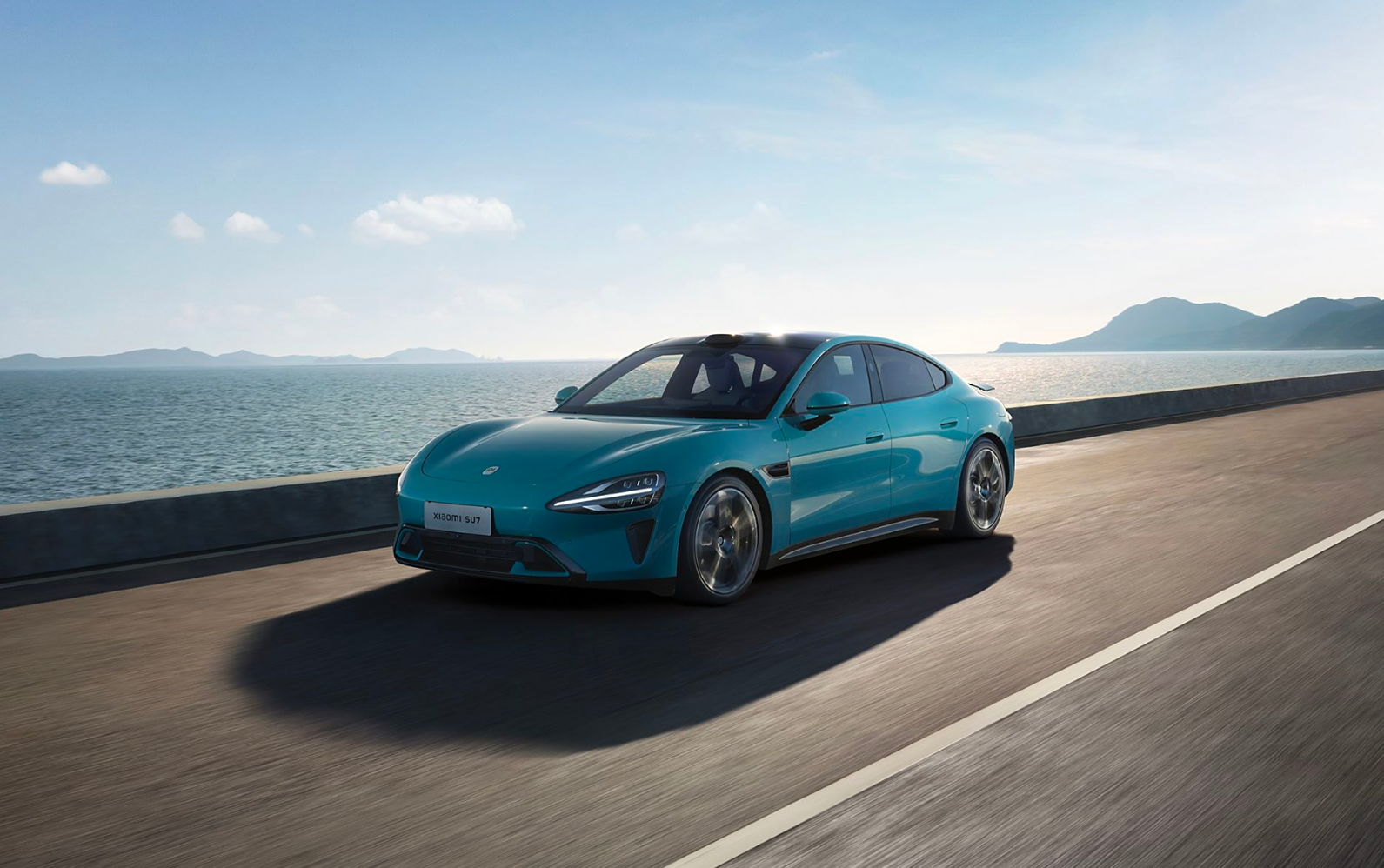
It must be acknowledged that the domestic pure electric performance car market is still a blank space. Only in recent years have models like the ZEEKR 001 FR, Hyper SSR, and NIO EP9 filled this niche, providing valuable input to the entire industry chain and laying a foundation for Xiaomi SU7 Ultra's entry.
At this stage, intelligence is gradually becoming a primary factor influencing consumers' car purchasing decisions and a key selling point for automakers. Performance-oriented products are unlikely to achieve remarkable sales figures due to the fact that consumers do not perceive a strong sense of control in electric vehicles but have a distinct perception of intelligence. However, performance and intelligence are not mutually exclusive; both are crucial in the development of the new energy vehicle market.
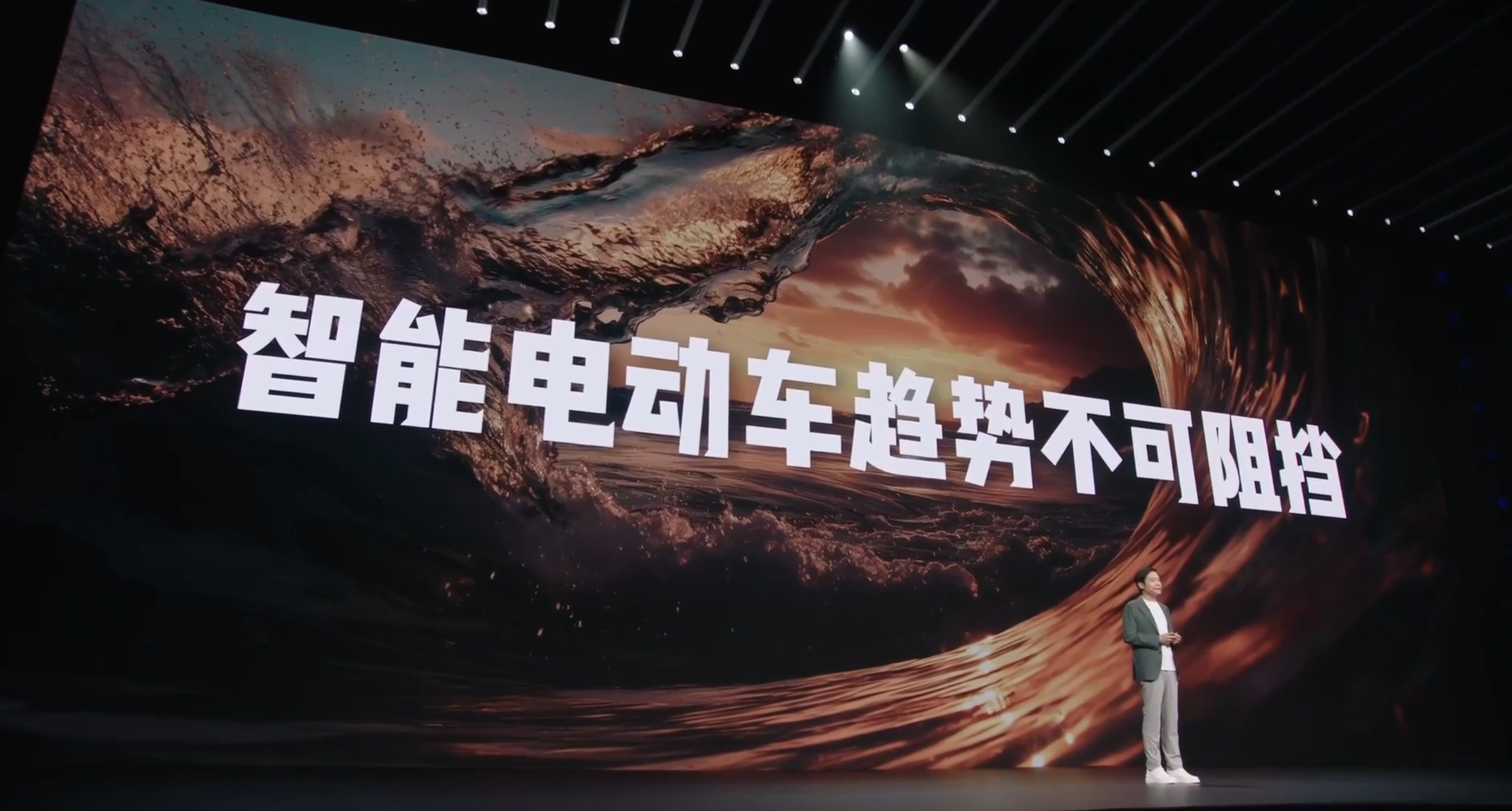
Take BYD, the leader in new energy vehicles, as an example. After establishing a presence in the mainstream market, the brand quickly embraced the performance car segment, launching models like the NIO EP9 and NIO EP7, and actively building racing venues and fostering a racing culture.
In my opinion, for the automotive market to develop healthily, all segments must operate stably. While performance cars may not be the "main course," they are an indispensable "condiment." Now, as a new force in the industry, Xiaomi Automobile has also joined the ranks of performance car makers, which may encourage other automakers to follow suit.
Source: Leitech






